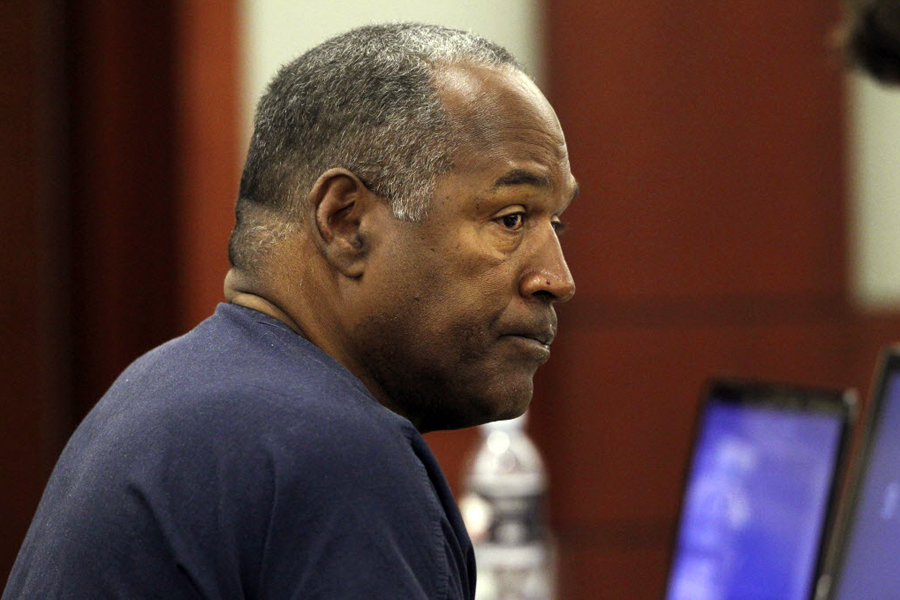O.J. Simpson expresses regret, waits for Nev. parole decision
| CARSON CITY, Nev.
O.J. Simpson should know next week whether his blemish-free record behind bars and contrition for trying to take back sports memorabilia of his glory days will win him favor with the Nevada Board of Parole Commissioners.
The former NFL star asked for leniency Thursday, expressing regret for his actions and describing himself as a model inmate who earns pennies an hour keeping gym equipment sanitized and umpiring and coaching games in the prison yard.
Parole Commissioner Susan Jackson and hearing representative Robin Bates were to make their confidential recommendation to the full parole board, and a final decision is expected next week. Jackson noted thatSimpson has had no disciplinary actions during his incarceration and was deemed a "low risk" to commit repeat offenses.
"I just wish I never went to that room," the 66-year-old Simpson said during a 15-minute appearance.
The graying Simpson, dressed in prison blues, attended the hearing remotely from a video conference room the Lovelock Correction Center. Four out of seven commissioners must support his request. But he won't be looking at possible freedom just yet because he is only eligible for parole on five convictions that were ordered to run concurrently — two counts each of kidnapping and robbery and one count of burglary with a weapon.
Even if the Nevada Parole Board ruled in his favor, he would then begin serving sentences attached to other charges and spend at least another four years in prison. He still has four weapon enhancement sentences to serve, followed by consecutive terms for two counts of assault with a deadly weapon. Parole from those sentences would be considered at future hearings.
Simpson provided a glimpse of his time in prison since he was sentenced to nine to 33 years behind bars. He said he has served as a counselor of sorts to other inmates who come to him with their issues. But he said he shouldn't be compared with other inmates.
"The difference between all of their crimes and mine is, they were trying to steal other people's property," he said. "They were trying to steal other people's money.
"My crime was trying to retrieve for my family my own property," he said, mentioning how he has missed his children, graduations and his sister's funeral. "Make no mistake I would give it all back to these guys. They can have it all to get these five years of my life back."
He also told the two-member parole panel that he has spoken at length with Alfred Beardsley and Bruce Fromong — the two dealers targeted in the holdup. He acknowledged that he was "not as civil as I should have been" while trying to regain the property."
"I knew both of these guys who had my stuff," Simpson said. "I am sorry for what has happened. ... I've apologized. They've apologized."
He was the only person to speak on his behalf. No victims spoke.
But his best chance for freedom lies with a pending decision by a Las Vegas judge on whether to grant him a new trial based on claims that his trial lawyer botched his defense and had a conflict of interest in the case. Clark County District Judge Linda Marie Bell held a weeklong hearing in May on the issue that featured testimony from Simpson
During that hearing, his current lawyers, Patricia Palm and Ozzie Fumo, presented evidence and questioned witnesses, including trial lawyer Yale Galanter, about whether he knew in advance about the September 2007 plan for Simpson and several other men to confront the memorabilia dealers.
Simpson argues that he was trying to retrieve items stolen from him after his 1995 "trial of the century" in Los Angeles when he was acquitted of murder in the 1994 slayings of his ex-wife and her friend.
But he also acknowledged when questioned by prosecutor H. Leon Simon that other items were taken, including Beardsley's hat and sunglasses, Fromong's cellphone, lithographs featuring football star Joe Montana and autographed Pete Rose and Duke Synder baseballs.







